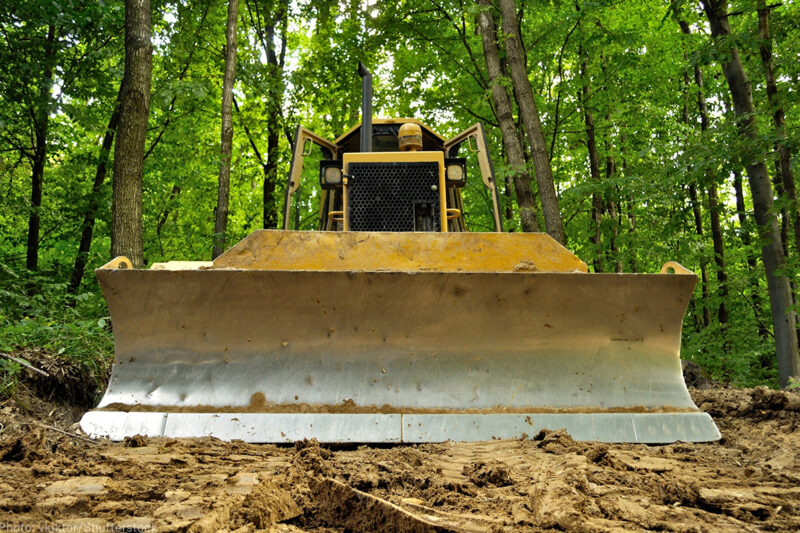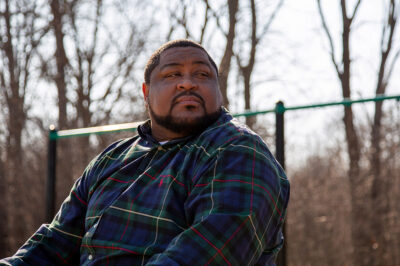
Fifty-one-year-old Gregory Longenecker of Reading, Pennsylvania, should be alive today. Instead, he’s the latest casualty in the state’s war on weed because of a police pursuit gone horribly wrong.
Around 10 a.m. on July 9, a Pennsylvania Game Commission employee, clearing brush with a bulldozer, spotted a suspicious car parked off the road within the state’s game lands in Berks County. Upon closer inspection, the employee discovered a small marijuana grow. The employee then contacted the local police who arrived on the scene as two men, David Light and Longenecker, emerged from the underbrush. Both took off on foot, according to police, and Light was quickly taken into custody.
Longenecker, however, got away, but not for long.
Around 11 a.m., state police and Game Commission personnel and resources, including the bulldozer and a state police helicopter, began their search for Longenecker. The helicopter spotted the 51-year-old in thick underbrush but lost him. The helicopter pilot quickly gave directions of Longenecker’s whereabouts to a state trooper and a Game Commission employee who were patrolling the area on the bulldozer.
And that’s when tragedy struck.
Rolling through the thick underbrush, the bulldozer ran over Longenecker. "I'm telling you it's so thick up there, there's no way, there's no way you could see somebody laying there," said Pennsylvania State Trooper David Beohm, who also floated the idea that Longenecker had a heart attack before the bulldozer ran over him. Preliminary autopsy findings, however, indicated that Longenecker died of traumatic injuries sustained from the bulldozer.
When all was said and done, the state police found 10 marijuana plants. The obvious question is whether the discovery of a small marijuana grow should have prompted the deployment of a police helicopter and the use of a bulldozer to pursue an unarmed suspect who didn’t present imminent harm to anyone, especially in a state with liberalizing marijuana laws. The answer clearly should be no.
After all, a very limited medical marijuana law is working in Pennsylvania for a small pool of qualified patients. Several cities across the state, including Erie, Harrisburg, Pittsburgh, State College, and York have downgraded penalties for marijuana possession, with Philadelphia being the only one to decriminalize possession completely. Though the ACLU supports marijuana legalization, citations and fines are a better way of controlling drug use than criminalization and engaging in lethal hot police pursuits.
Patrick Nightingale, the executive director of the National Organization for the Reform of Marijuana Laws’ Pittsburgh chapter, told the Associated Press, “I’ve seen law enforcement take down major heroin traffickers that haven’t engaged in this level of aggression.”
Pennsylvania judges also have a long history of offering probation to marijuana cultivators, even when offenders are caught with hundreds of plants. As Chris Goldstein, a marijuana reform advocate who often partners with the ACLU of Pennsylvania, pointed out two years ago on Philly.com, Kevin Gooler was convicted in February 2016 for growing 112 marijuana plants behind his barn after a police helicopter looking for a missing teenager spotted the illicit garden.
Although growing any amount of marijuana — even one plant — in the Keystone State is a felony, the sentences levied are usually light. Gooler served 30 days in jail and 6 months under house arrest. That isn't uncommon, which again raises the question of why the state police was so aggressive and negligent in its pursuit of Longenecker.
Hopefully, the tragic deaths of people like Longenecker will continue to shine a light, both in Pennsylvania and across the nation, on the nightmarish consequences of the war on marijuana. In Pennsylvania, arrests for marijuana violations are at record levels, even though 59 percent of Pennsylvania voters last September said marijuana should be legalized. More than 20,000 adults were put into handcuffs for less than 30 grams of cannabis in 2017.
Unsurprisingly, the consequences of prohibition fall disproportionately on communities of color in the state. Black adults were 3.6 times more likely to be arrested for marijuana possession than white adults, even though Black and white people use marijuana at roughly the same rates. Across the U.S., that disparity hits 3.73, according to a 2013 report from the ACLU.
As for the Longenecker tragedy, the Pennsylvania State Police have opened an investigation into his death and put the bulldozer-riding trooper on administrative leave. But one thing should be clear: Gregory Longenecker should be alive today.




